Increasing IT adoption within the U.S. healthcare industry are
expected to fuel the growth of the software market over the next five
years, according to IDC. On average, the healthcare market will
represent a 9.7% five-year compound annual growth rate (CAGR) within
the packaged applications, infrastructure software, and application and
development and deployment markets. Together, these markets totaled
$98.1 billion in 2004.
Here's IDC's view of the health care software market:
programs, explained that the significant increase in software spending
within the healthcare industry is based upon the fact that, "until
recently, a distinct polarity has existed in the healthcare industry
with respect to its use of medical technology and information
technology. Although at the forefront of technology in terms of
diagnostic and treatment equipment, the industry has long been deemed
the laggard with regard to information technology. However, now faced
with an aging population requiring at-home or long-term care,
escalating overhead costs, and information privacy regulations such as
HIPAA, the industry is under intense pressure to bring its information
technology into the 21st century."
A counterpoint of a sort is provided by Accenture, who released a study
showing that the "widespread and costly investment in customer
relationship management tools
has not resulted in a better service for consumers." Having lived
through two CRM implementations, I'm not surprised. One CRM vendor has words of wisdom for hospitals,
technology and expecting it to solve all your problems," said Chris Boorman,
vice president of marketing for Europe at
Salesforce.com.
UPDATE: Matthew Holt has more on Accenture's new found frankness concerning the efficacy of CRM applications.


Recent Comments